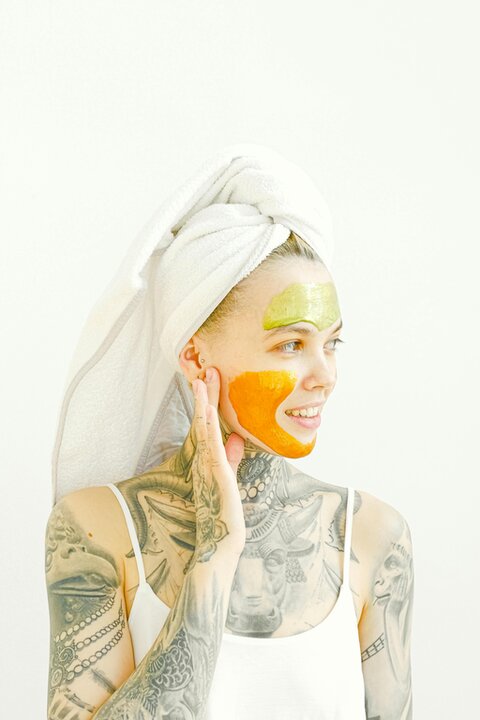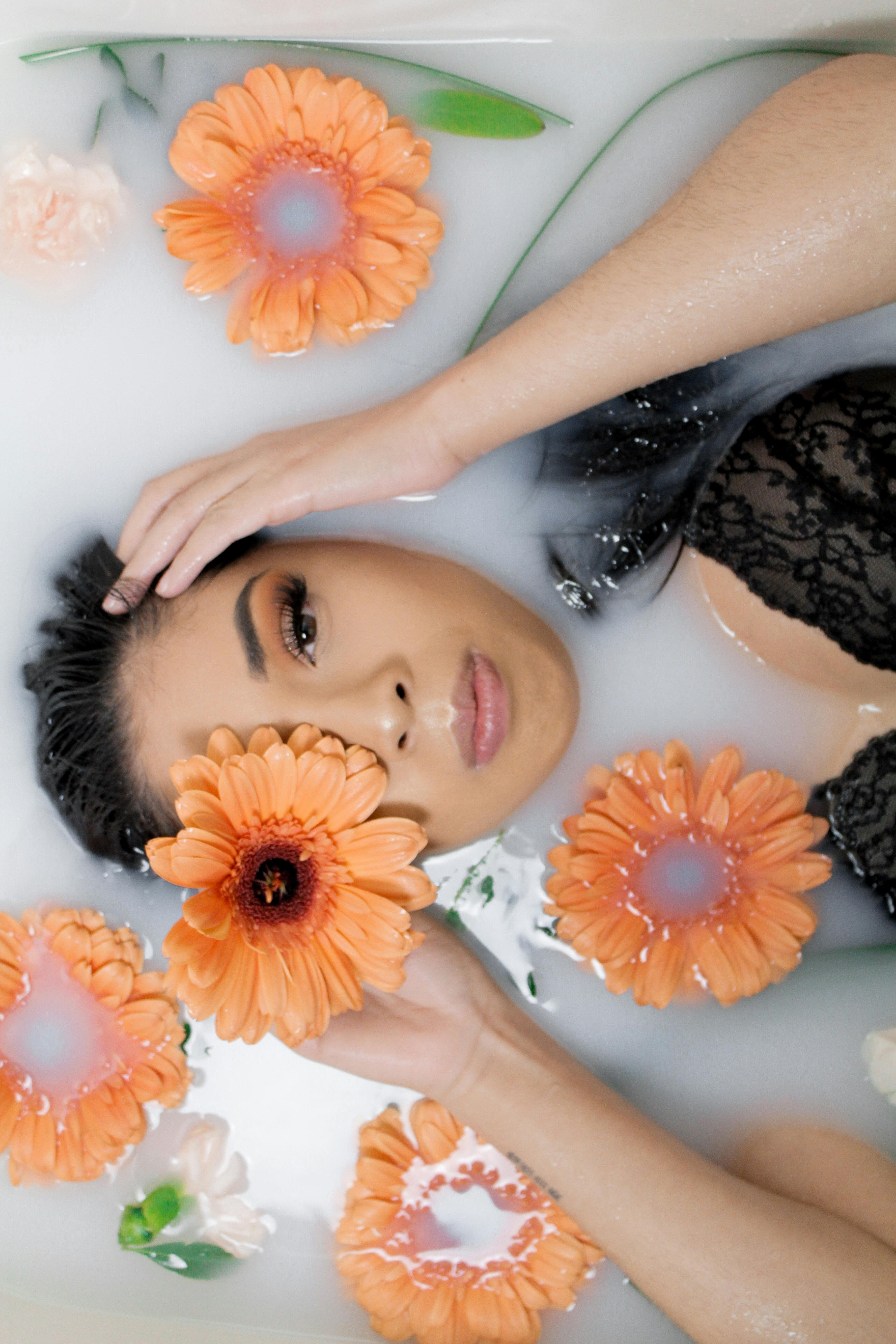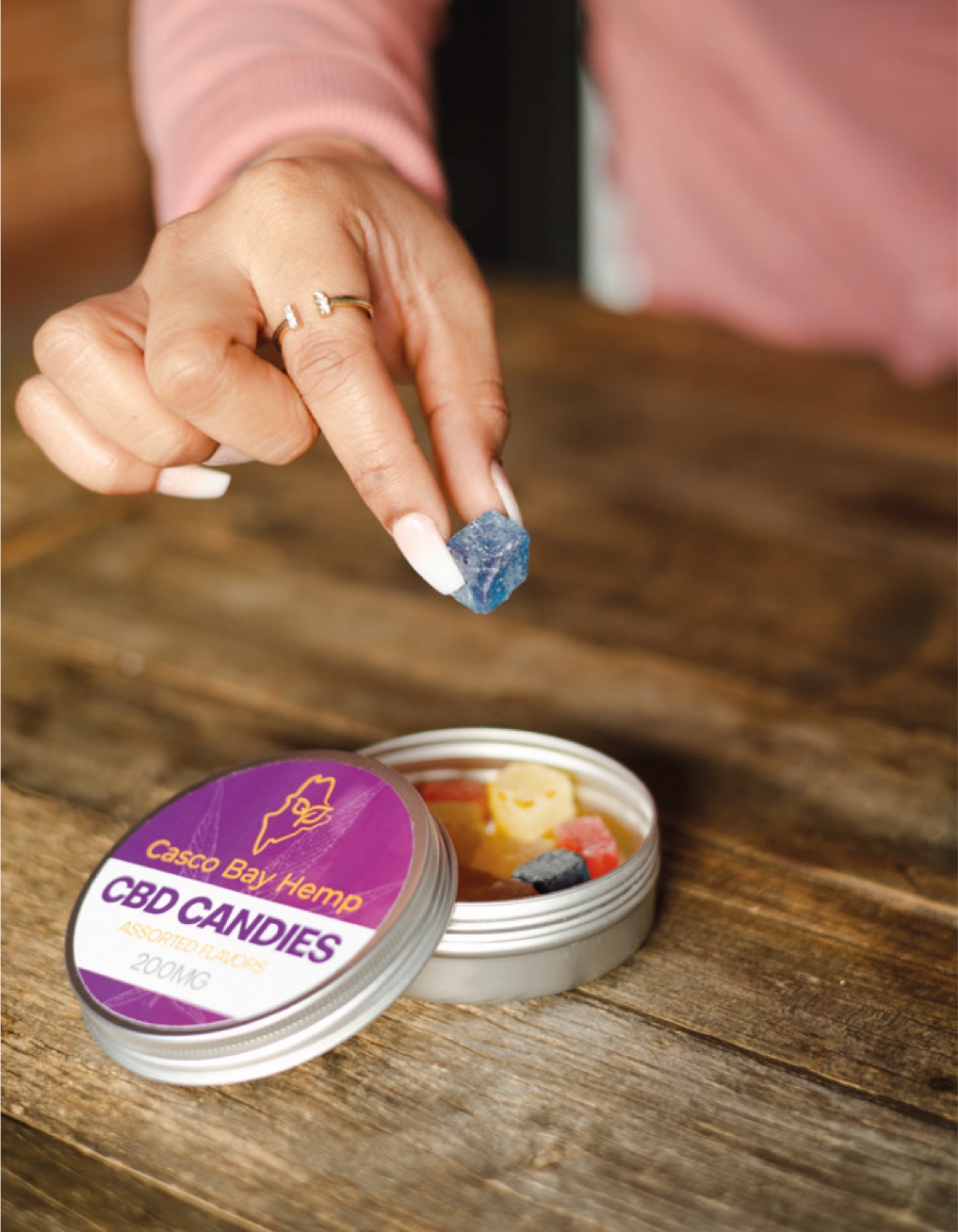COLUMN: CONSUMER PERSPECTIVE
Mind, body, beauty - decoding the holistic beauty revolution
KEYWORDS —
CONSUMER,
HOLISTIC,
BEAUTY,
COSMETICS,
PSYCHOLOGY,
WELLNESS,
NUTRITION.
Abstract
Studies of major depressive disorder have been correlated with reduced Lactobacillus and Bifidobacteria and symptom severity has been correlated to changes in Firmicutes, Actinobacteria, and Bacteriodes. Gut microbiota that contain more butyrate producers have been correlated with improved quality of life (1).
A study in healthy women providing probiotic yogurt for four weeks showed an improvement in emotional responses as measured by brain scans (2). A subsequent study by Mohammadi et al. (3) investigated the impacts of probiotic yogurt and probiotic capsules over 6 weeks and found a significant improvement in depression-anxiety-stress scores in subjects taking the specific strains of probiotics contained in the yogurt or capsules. Other studies with probiotics have indicated improvements in depression scores, anxiety, postpartum depression and mood rating in an elderly population (4-7).
Other studies have indicated a benefit of probiotic supplementation in alleviating symptoms of stress. In particular, researchers have looked at stress in students as they prepared for exams, while also evaluating other health indicators such as flu and cold symptoms (1). In healthy people, there is an indication that probiotic supplementation may help to maintain memory function under conditions of acute stress.
“
“A study in healthy women providing probiotic yogurt for four weeks showed an improvement in emotional responses as measured by brain scans”
In an era where beauty is more than skin deep, consumers are increasingly gravitating towards holistic beauty practices that transcend traditional skincare routines. The convergence of psychology and consumer behavior in the beauty industry has unveiled a profound shift towards holistic well-being. This opinion piece explores the evolving consumer perspective on holistic beauty, shedding light on the psychological drivers and behaviors that fuel this transformative trend
Holistic beauty refers to thinking about beauty and skin- or self- care as a result of a healthy mind and body together. This holistic approach to beauty can involve incorporating more healthy lifestyles into beauty routines or consuming better healthier foods and ingredients in diet. The main concept is that what happens on the surface is as much a result of environmental factors as it is a reflection of internal states and, therefore, should not be treated separately: what is good for the soul is good for the body.
UNDERSTANDING THE PSYCHOLOGY OF HOLISTIC BEAUTY
Holistic beauty goes beyond the surface, tapping into the psyche of consumers who seek a more profound connection between mind, body, and beauty. Delving into the psychology, consumers are drawn to holistic beauty for its promise of authenticity, self-empowerment, and a sense of balance. The desire for a comprehensive well-being experience is fueled by the need for a beauty routine that resonates with individual values and aligns with the broader trend towards mindfulness.
Psychodermatology, as described in a recent Psychology Today article (1), explores the interplay between the mind and skin, encompassing conditions involving both. Specialists in this field examine how skin disorders impact mental health and vice versa, collaborating with dermatologists, mental health practitioners, and psychologists for comprehensive care. Recent research underscores the heightened prevalence of psychiatric illnesses among patients with serious skin conditions, elevating the significance of psychodermatology.
Skincare contributes to improved mental health by nurturing self-love through regular, mindful routines, which serve as anchors for self-care and evoke feelings of relaxation and emotional comfort, fostering a sense of being loved and cared for. Bouhout et al. (2) recently investigated the physiological and psychological effects of facial skincare compared to a resting condition, revealing higher levels of relaxation and positive emotions associated with skincare routines, suggesting its potential as a distinct contributor to well-being.

RE-SHAPING CONSUMER BEHAVIORS
Consumer behaviors in the beauty market are undergoing a significant shift as individuals become more discerning in their choices. From ingredient-conscious purchases to a preference for cruelty-free and sustainable products, holistic beauty is reshaping the landscape.
You are what you eat. Nutrition significantly impacts health, including skin health, as evidenced by its influence on metabolism, weight, and organ function such as the heart and liver. Increasing scientific understanding emphasizes the role of diet in skin health and aging. In a recent study, Faria-Silva et al. (3) highlights the emergence of nutricosmetics, where food ingredients are incorporated into skincare products, and emphasizes the utilization of food industry by-products through sustainable extraction processes. While there is marketing of natural active food-derived ingredients for skincare benefits, the discussion around their efficacy is not always thorough, marking a shift towards both oral supplementation and kitchen-based skincare solutions.
Further, with a global push toward carbon neutrality and clean energy, brands must prioritize sustainability in their product development. Cosmetic manufacturing, known for its intensive chemical processes, contributes significantly to environmental degradation through packaging materials like plastics, paper, glass, and metals. Environmentally sustainable products offer reduced environmental impact compared to conventional alternatives, emphasizing eco-friendly materials, manufacturing, and recycling practices. Amidst growing awareness of health risks associated with chemicals, consumers increasingly seek sustainable and environmentally friendly cosmetic options, reflecting a shift in consumer behavior towards greener choices for a sustainable, holistic future with product that better represent their inner feelings about the world around them.
THE ROLE OF PERSONALIZATION
One size does not fit all in the world of holistic beauty, and consumers are well aware of it. There seems to be increasing demand for personalized beauty experiences driven by a desire for tailored solutions that cater to individual needs. Analyzing consumer preferences and the rise of customizable beauty routines, exploring personalization is a key driver in the holistic beauty paradigm.
Not all customized skincare brands are the same. Some provide customized formulas based on skin type and skin condition. But in general, the process involves a form of evaluation of the consumer’s skin, questions regarding lifestyle, environment, and skincare goals. And the goal is to design a customized program for their skin with formulas designed for the consumer without unnecessary ingredients.
Goh et al., (4) addressed the need for practical guidance on holistic skincare routines in a recent study, including treatment, cleansing, moisturizing, and photoprotection (CMP), for dermatological conditions like acne, rosacea, atopic dermatitis, and idiopathic sensitive skin syndrome. Through expert consensus, they emphasize the importance of dermatologist-led comprehensive skincare to enhance patient confidence, reduce confusion, and improve treatment outcomes. Another study, from Kanaska (5), showed that the majority of Gen Y and Z consumers see personalization technology as the future of skincare. Importantly, however, they also found that consumers believe that this personalization does not come from brands but should be more focused on specific skin conditions and concerns and be more evidence-based. This may present a challenge for larger brands.
THE FUTURE OF HOLISTIC BEAUTY:
As holistic beauty continues to gain momentum, this piece concludes with insights into the future of beauty from a consumer perspective. Anticipated trends include an even greater emphasis on sustainability, a surge in holistic beauty tech, and an expanded definition of inclusivity that transcends physical appearance.
The beauty industry faces a transformative shift as consumers prioritize holistic well-being over traditional beauty standards. To meet evolving demands, the industry must emphasize humanity over vanity, embracing transparency, digital platforms, and high-touch service offerings. As consumer behavior changes post-COVID-19, luxury will be redefined by wellness-oriented products, driving mergers across beauty, health, and wellness sectors. Technology will play a central role in fostering intimate connections with consumers, leading to a new marketing model focused on emotional engagement and trust. Ultimately, the industry's success will hinge on its ability to transcend superficiality and prioritize authentic relationships with consumers.
Incorporating holistic design into cosmetic products will involve considering the entire user experience comprehensively, aiming to enhance its seamlessness and satisfaction. This approach not only encourages initial product purchase and usage but also fosters customer loyalty and repeat business. By understanding and embracing holistic beauty, brands can tap into this growing market, cater to evolving consumer behavior, and establish their position as a trusted source for safe, sustainable, and effective beauty products.
Holistic beauty is not merely a trend but a transformative movement that reflects the evolving psychology and behaviors of consumers. By understanding the multifaceted aspects of holistic beauty, industry stakeholders can position themselves to meet the growing demand for authentic, mindful, and personalized beauty experiences. As the beauty landscape evolves, embracing a holistic approach is not just a preference but a profound shift in the consumer mindset.

The Future of Metaverse Personal Care
The future of sensory experiences in the metaverse is a tantalizing frontier poised for remarkable growth and innovation. As technology continues to advance, we can anticipate increasingly lifelike simulations of texture, scent, and other sensory elements, bringing us closer to replicating the tangible sensations of the physical world in the digital realm. Haptic feedback and scent-emitting technologies are likely to become even more sophisticated, offering a truly immersive multisensory experience. Furthermore, as metaverse personal care continues to evolve, it will further blur the lines between virtual and physical beauty, opening up exciting possibilities for customization, personalization, and holistic self-care. To fully embrace this transformative journey, we must stay engaged, explore, and actively participate in shaping the evolving metaverse landscape. As consumers and creators alike, our collective input and imagination will continue to drive the innovation that defines the future of sensory-rich personal care experiences in the metaverse.

Studies of major depressive disorder have been correlated with reduced Lactobacillus and Bifidobacteria and symptom severity has been correlated to changes in Firmicutes, Actinobacteria, and Bacteriodes. Gut microbiota that contain more butyrate producers have been correlated with improved quality of life (1).
A study in healthy women providing probiotic yogurt for four weeks showed an improvement in emotional responses as measured by brain scans (2). A subsequent study by Mohammadi et al. (3) investigated the impacts of probiotic yogurt and probiotic capsules over 6 weeks and found a significant improvement in depression-anxiety-stress scores in subjects taking the specific strains of probiotics contained in the yogurt or capsules. Other studies with probiotics have indicated improvements in depression scores, anxiety, postpartum depression and mood rating in an elderly population (4-7).
Other studies have indicated a benefit of probiotic supplementation in alleviating symptoms of stress. In particular, researchers have looked at stress in students as they prepared for exams, while also evaluating other health indicators such as flu and cold symptoms (1). In healthy people, there is an indication that probiotic supplementation may help to maintain memory function under conditions of acute stress.
References and notes
- Goldin, D.S. (2021, June 23). The Mind-and-Skin Connection: Dermatology and psychiatry team up. Psychology Today. https://www.psychologytoday.com/us/blog/the-brain-body-connection/202106/the-mind-and-skin-connection
- Bouhout, S., Aubert, A., Vial, F., & Choquenet, B. (2023). Physiological benefits associated with facial skincare: Well‐being from emotional perception to neuromodulation. International Journal of Cosmetic Science. https://doi.org/10.1111/ics.12855
- Faria-Silva, C., Ascenso, A., Costa, A. M., Marto, J., Carvalheiro, M., Ribeiro, H. M., & Simões, S. (2020). Feeding the skin: A new trend in food and cosmetics convergence. Trends in Food Science & Technology, 95, 21-32. https://doi.org/10.1016/j.tifs.2019.11.015
- Goh, C. L., Wu, Y., Welsh, B., Abad‐Casintahan, M. F., Tseng, C. J., Sharad, J., ... & Chan, H. N. K. (2023). Expert consensus on holistic skin care routine: Focus on acne, rosacea, atopic dermatitis, and sensitive skin syndrome. Journal of Cosmetic Dermatology, 22(1), 45-54. https://doi.org/10.1111/jocd.15519
- Kanaska, S. D. (2022). Is the future of beauty personalized?: case study for microbiome skincare brand skinome. https://www.diva-portal.org/smash/record.jsf?pid=diva2%3A1703718

